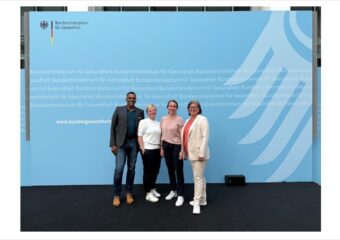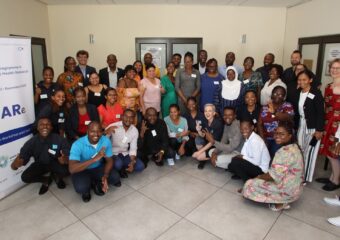GHPP PharmTrain Workshop – Target met: Eight Jointly Developed Regulatory Guidelines are Available Online now
September 2022: The Joint Technical Working Group for Guidelines in Marketing Authorization (TWG-MAG) met for a successful three day-workshop in Accra, Ghana, organized by the GHPP PharmTrain team. The remarkable achievement of the workshop was the finalization of the remaining two guidelines out of eight that were prioritized in an initial work plan in 2021. All guidelines are now online available thereby strengthening African regulatory systems through harmonization.
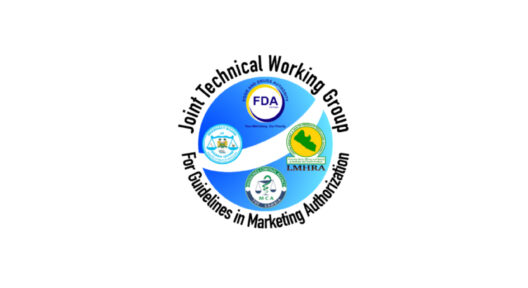
Joint guidelines: Ambitious work plan for 2021 and 2022
The four national medicines regulatory authorities (NMRAs) of Ghana (FDA Ghana), Liberia (LMHRA), Sierra Leone (PBSL) and The Gambia (MCA Gambia) are working as TWG-MAG members with the PharmTrain team in a joint effort to develop guidelines for marketing authorization. In 2021, a work plan was established that prioritized eight guidelines important for reaching WHO global benchmarking tool (GBT) maturity level 1-2.
Guidelines:
- Guideline on Reliance,
- Guideline on Bioequivalence,
- Guideline on Bioanalytical Method Validation,
- Guideline on Donation,
- Guideline on Renewal,
- Guideline on Stability Testing,
- Guideline on Emergency Use Authorization, and
- Guideline on Withdrawal, Suspension, Revocation, or Cancellation of Marketing Authorization.
The Guideline on Guidelines, the first guideline developed by the members, served as basis to standardize the development process and document structure for any future guideline.
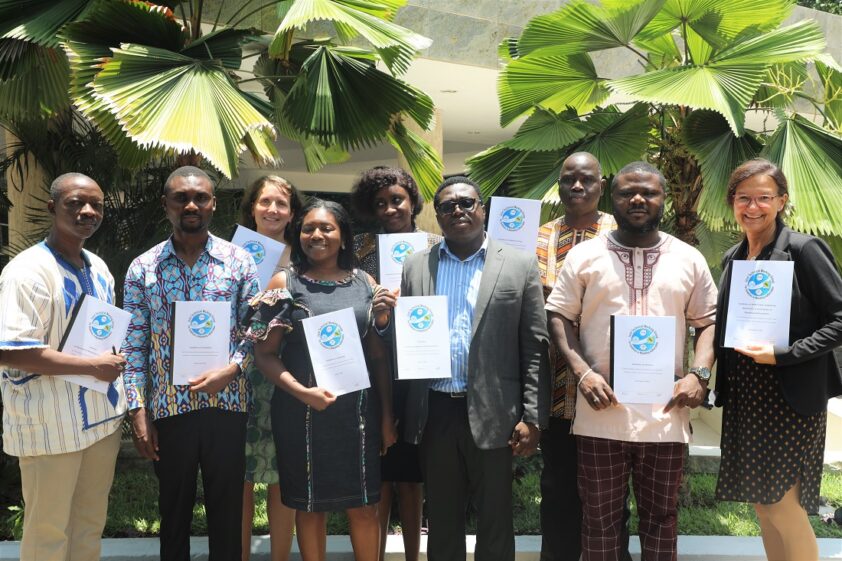
Due to the COVID-19 pandemic, the collaboration has been mostly virtual in the last years, except for a hybrid workshop in November 2021. By early September 2022, the TWG-MAG has already finalized six of the prioritized guidelines.
Finally, in mid-September, a face-to-face workshop of the TWG-MAG could be realized in Accra, Ghana. This was crucial to take important steps towards the completion of this and last year’s work plan and beyond.
Working and engaging with the PharmTrain team allowed me to understand the thought processes that goes into guideline development and has given me a much better appreciation of guideline development.
Anonymous feedback of workshop participant provided in a questionnaire.
Face-to-face collaboration: Two guidelines finalized and more
Two remaining draft guidelines were of major interest during the face-to-face workshop. The Guideline on Emergency Use Authorization could be successfully finalized. This guideline strengthens the NMRAs’ response to emergency situations such as the COVID-19 pandemic.
The starting point for the finalization of the Guideline on Withdrawal, Suspension, Revocation, or Cancellation of Marketing Authorization was a clear definition of the terminology for different post-marketing authorization scenarios, as these terms may be applied differently depending on the national legislation. The now finalized guideline, well-structured on account of these definitions, provides guidance for example if requirements for medicinal product registration are no longer being met.
Another focus of the workshop was to further agree on the overarching definition list that streamlines any terms used in all jointly developed guidelines. In addition, partners from FDA Ghana introduced the first draft of the comprehensive Guideline on Variation, the first guideline with maturity level 3 according to the WHO GBT. This initiates the next phase of the TWG-MAG collaboration.
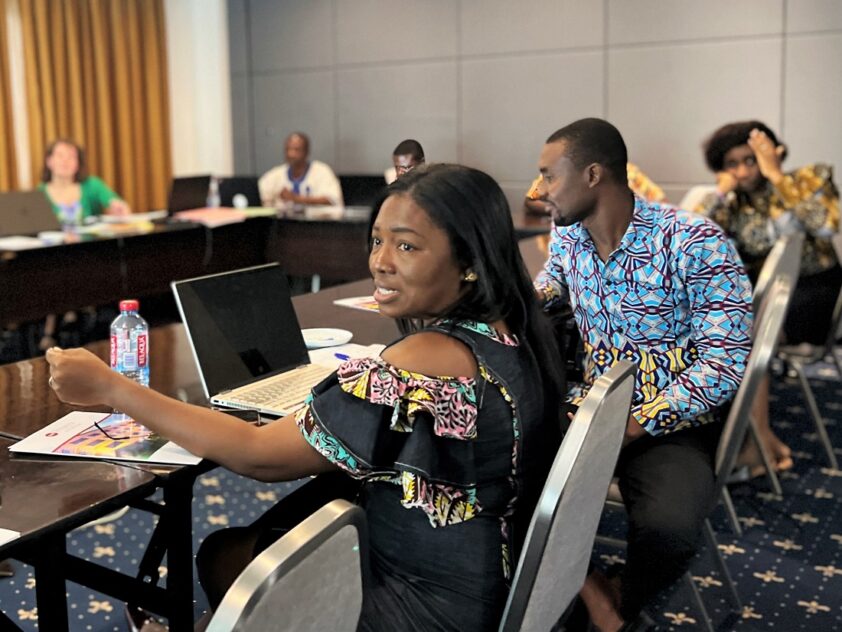
The workshop was well organized, intriguing and very beneficial to us. It did provide us the opportunity to interact and share information relative to the improvement of our work in marketing authorization. The development of these guidelines is a major step in enabling my National Medicine Regulatory Authority to fulfill the WHO Global Benchmark Tool indicators.
Anonymous feedback of workshop participant provided in a questionnaire.
Guidelines in action: Guidance documents available online for regulatory harmonization
The workshop was an excellent opportunity for all participants to give an update about their NMRA’s implementation status of the jointly developed guidelines. By sharing experiences, the TWG-MAG members observed common challenges in implementation such as NMRA timelines or getting all stakeholders involved during public consultation phases and familiarized with the use of the finalized guidelines. Several promising solutions were gathered in a brainstorming and will be applied in future.
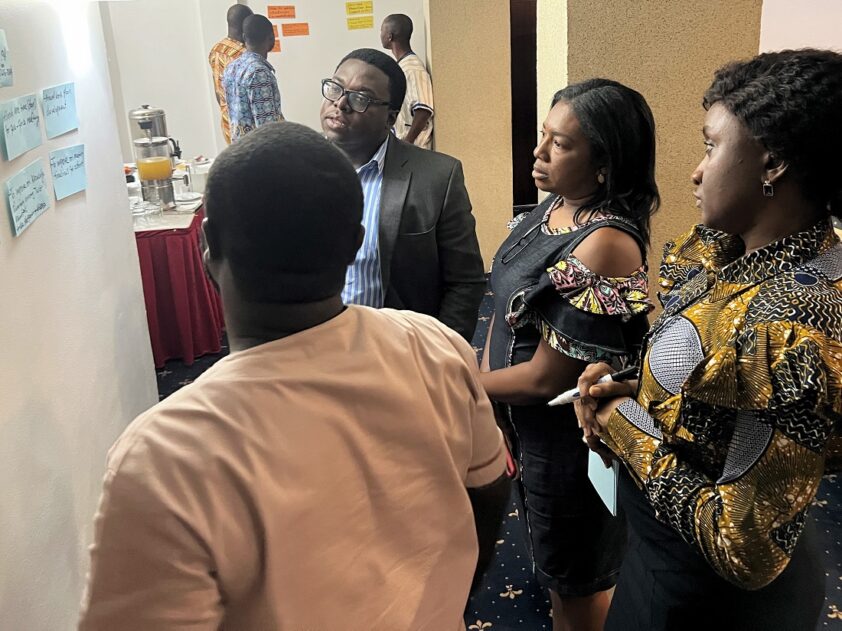
Most of the guidelines finalized so far have already been adopted by the partner NMRAs after alignment to country specific needs and a subsequent internal consultation phase. All NMRAs have advanced with two to five guidelines to the respective public consultation phases. Moreover, two NMRAs are about to make the final implementation steps for three guidelines coming into effect.
The long awaited personal exchange among the TWG-MAG members during the workshop sparked many fruitful discussions. It led not only to the completion of the initial work plan, but also enabled a big step towards regulatory harmonization in the field of marketing authorization in West Africa and beyond. Both the PharmTrain team and the colleagues from the partner NMRAs in the ECOWAS region look forward to further joint structure-building activities.
All guidelines that were jointly developed by the TWG-MAG are now completed and publicly available. In particular, all regulatory authorities worldwide are invited to download and use the guidelines for their specific needs if credit is given to the authors – all members of the TWG-MAG.
Date: December 2022

